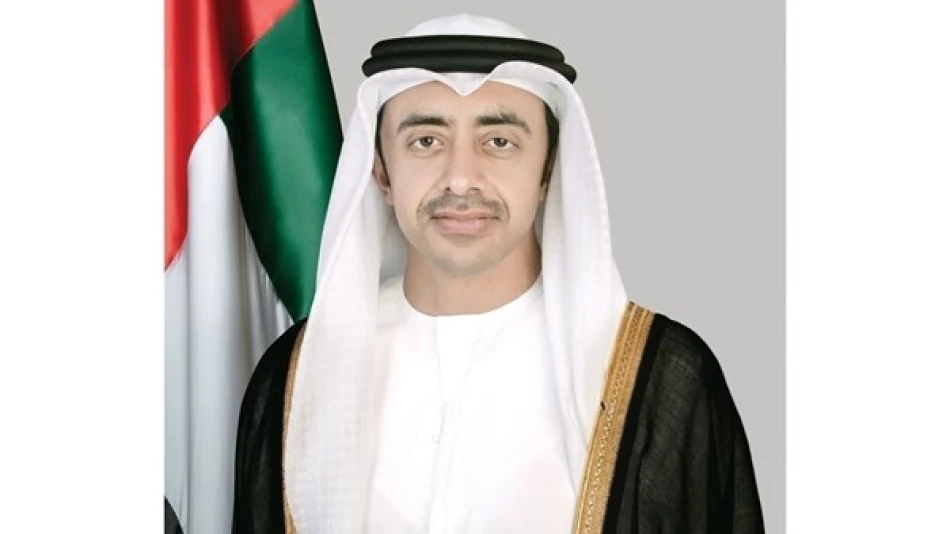
UAE and Jordan Lead Multinational Humanitarian Aid Airdrop Operation to Gaza
UAE and Jordan Lead International Coalition in 59th Gaza Aid Drop Mission
The UAE and Jordan have orchestrated their largest coordinated humanitarian effort yet for Gaza, leading a seven-nation airdrop mission that signals a strategic shift toward multilateral Arab leadership in crisis response. The operation, involving aircraft from France, Germany, Italy, and Spain, represents more than emergency relief—it positions Gulf states as central coordinators of international humanitarian diplomacy.
Operation "Noble Knight 3" Expands International Reach
Sheikh Abdullah bin Zayed Al Nahyan, UAE's Deputy Prime Minister and Foreign Minister, confirmed the completion of the 59th airdrop mission during a phone call with his Jordanian counterpart, Ayman Safadi. The operation delivered food and emergency supplies to Gaza's most severely affected areas under the banner of "Operation Noble Knight 3."
This marks a significant escalation in scope from earlier UAE-Jordan joint operations. The inclusion of four European nations—France, Germany, Italy, and Spain—demonstrates how regional Arab leadership is successfully mobilizing Western support for humanitarian initiatives, a diplomatic achievement that extends beyond immediate relief efforts.
Strategic Coordination Between Regional Powers
The UAE-Jordan partnership has emerged as a model for regional humanitarian coordination. Jordan's geographical proximity to Gaza and established logistics networks complement the UAE's financial resources and international diplomatic reach. This collaboration bypasses traditional multilateral organizations that have faced operational constraints in the region.
Sheikh Abdullah emphasized that the UAE's involvement stems from direct instructions from President Sheikh Mohammed bin Zayed Al Nahyan, indicating the highest level of state commitment to these operations.
Multi-Modal Relief Strategy Shows Operational Sophistication
The UAE has implemented what officials describe as "integrated relief operations" using land, air, and sea routes—a comprehensive approach that demonstrates significant logistical capabilities. This multi-vector strategy reduces dependency on any single delivery method and ensures continued aid flow despite changing ground conditions.
The air-drop method, while less efficient than ground delivery, has become crucial as traditional border crossings face restrictions. The UAE's ability to coordinate international aircraft for these missions positions it as a key facilitator in humanitarian logistics.
Diplomatic Implications Beyond Humanitarian Aid
The operation reflects broader shifts in Middle Eastern diplomatic dynamics. The UAE's emphasis on "continuous political and diplomatic action" alongside direct relief work signals an integrated approach that combines humanitarian assistance with strategic diplomatic positioning.
This model contrasts with traditional aid delivery systems that often separate humanitarian work from political engagement. The UAE's approach suggests a more sophisticated understanding of how humanitarian leadership can enhance broader diplomatic influence.
Setting Precedent for Future Crisis Response
Sheikh Abdullah's commitment to maintaining this humanitarian approach "in cooperation with regional and international partners" indicates the UAE views this coordination model as a template for future crisis response. The successful integration of European military assets under Arab leadership could reshape expectations for humanitarian operations in the region.
The operation's success may encourage other Gulf states to adopt similar leadership roles in international humanitarian efforts, potentially creating a new paradigm where regional powers coordinate global responses to local crises rather than waiting for Western-led initiatives.
Most Viewed News

 Layla Al Mansoori
Layla Al Mansoori






